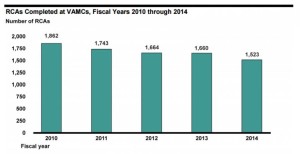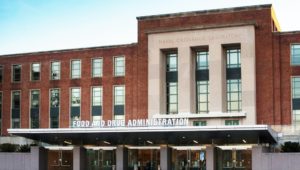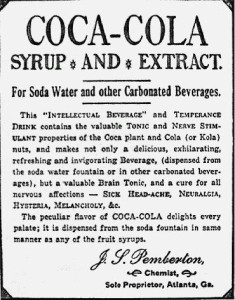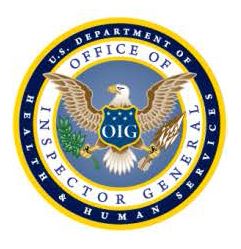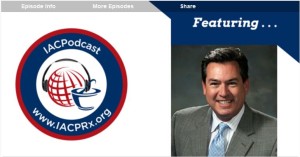- Drug compounding oversight rises, but spotty: Pew (biopharmadive.com)
State governments have stepped up their oversight of drug compounding in recent years, yet resource limitations may be hamstringing regulators from even more thorough inspections of traditional pharmacies, according to a new report...In 2015, the District of Columbia and 26 states required routine inspections of compounding pharmacies at least once a year. But by 2017, the number had fallen to 22 states plus the nation's capital...Many states have taken significant steps to better regulate drug compounding since the disastrous meningitis outbreak that came as a result of the New England Compounding Center's adulterated steroids...32 state boards of pharmacy require traditional pharmacies that compound sterile drugs to be in complete alignment with quality standards set forth in the U.S. Pharmaceutical Convention General Chapter. Another 11 states have provisions in place that they've determined are as strong — if not stronger — as the General Chapter's guidance...Issues have arisen despite that progress...Pew's research identified more than 50 reported or potential compounding errors from 2001 to 2017. The errors were linked to 1,227 adverse events, including 99 deaths — and those figures are likely low estimates, according to the organization.
- 7 Drug Shortage Findings Health-System Pharmacists Should Know (pharmacytimes.com)
Health-system pharmacists can play a critical role in managing drug shortages to prevent medical errors and adverse events...[Pharmacists] can often prevent shortages from impacting their institution by proactively managing inventory...When a shortage situation impacts hospital inventory, pharmacists should inform providers early...Pharmacists can also develop protocols for emergency department staff on what to do if a drug is not available. These protocols should include information about the best alternative medication, dosing recommendations, proper administration of the drug, and contraindications...Pharmacists can also take the following steps:
- To prevent errors, place specific labeling on a medication if a different concentration than what is normally stocked is being used.
- Help develop protocols for the ethical distribution of medications on shortage.
- Minimize waste of medications while compounding.
- Assist emergency medical services providers and directors with out-of-hospital protocols during shortages.
- Monitor and report adverse outcomes and medication errors.
...researchers examined data from the University of Utah Drug Information Service...Here are 7 things pharmacists should know about these findings:
- Of the 1789 drug shortages, about one-third (610) were within the scope of emergency medicine practice.
- From January 2008 to March 2014, emergency medicine drug shortages rose by 435%, from 23 to 123.
- The reason behind shortages remains unknown for around half of the 1789 cases.
- Infectious disease medications were hit hardest.
- Around 40% of drug shortages affect emergency care, according to a report from the Health and Human Services’ Emergency Care Coordination Center.
- The median shortage time for emergency medicine drugs was 9 months.
- The most common reasons for a drug shortage were related to manufacturing delays or problems.
- Women urge FDA to withdraw Bayer’s contraceptive Essure (reuters.com)
Dozens of women urged the U.S. Food and Drug Administration… to withdraw Bayer AG's permanent contraceptive device, Essure, saying not enough is known about its potential to harm users…complaints from thousands of women who said it had caused life-altering side effects from chronic pain and bleeding to autoimmune disorders such as psoriasis and lupus…. More than 5,000 adverse events have been reported to the FDA, though it is not always clear what role Essure played in the event…Mark Bell, a metals engineering consultant…, said he analyzed a number of Essure devices after they had been removed…believes there are latent manufacturing processing problems with the devices.
- Medical errors are up at VA hospitals, but they’re actually doing less to figure out why (washingtonpost.com)
Hospitals across the country are under growing pressure to reduce preventable medical mistakes, the errors that can cause real harm and even death to patients…Department of Veterans Affairs, which runs a massive system of hospitals and clinics that cared for 5.8 million veterans last year, is doing less, not more, to identify what went wrong to make sure it doesn’t happen again.
- Analysis: Reports of drug side effects increase fivefold in 12 years (jsonline.com)
For years, the FDA’s adverse events system has been derided because of its largely voluntary nature — only drug companies, not doctors or patients, are required to report problems. As a result, the system likely only was capturing a small percentage of cases...In recent years, the number of reports filed has been multiplying, prompting more independent researchers and drug companies to use the data as a way to detect safety problems...The surge in reports could indicate a growing number of harmed patients or more vigilant reporting of adverse events, a goal of the FDA. Experts say both likely play a role...Twelve years ago, there were 206,000 reports of side effects from medications filed with the FDA — complaints as frivolous as flatulence, as serious as death...By 2015, the most recent full year of data, the number had grown to 1.2 million...
- 8 Interesting Pharmacy Facts (pharmacytimes.com)Are you familiar with the following interesting facts about pharmacy?
- Coca-Cola was invented by a pharmacist named John Pemberton. He carried the jug of the new product down the street to Jacob's Pharmacy where it was sampled and pronounced "excellent" and placed on sale for 5 cents a glass as a soda fountain drink...Another pharmacist, Charles Alderton, invented Dr. Pepper. Pepsi was also invented by a pharmacist, as was Vernor’s Ginger Ale by Detroit pharmacist James Vernor.
- The first licensed pharmacist set up shop in the French Quarter. Louis Dufilho Jr. of New Orleans became American’s first licensed pharmacist in the early 1800s. Prior to then, you did not need a license to become a pharmacist.
- The global pharmaceuticals market is worth $300 billion.
- Benjamin Franklin was a pharmacist, while Agatha Christie was a pharmacy technician.
- Lipitor is the best-selling drug of all time. It was introduced in 1997 and its patent expired in 2011, making about $125 billion.
- Insulin is one of the most common medications that cause adverse events.
- Hydrocodone/acetaminophen is the most commonly prescribed medication in the United States. Lisinopril is No. 2, as of 2014.
- The most expensive drug is Glybera (alipogene tiparvovec) at a wholesale cost of $1.21 million per year. It is a gene therapy that helps restore lipoprotein lipase enzyme activity in those with familial lipoprotein lipase deficiency. Only 1 million patients have this extremely rare condition.
- Report: Errors In Diagnosis Are Common And Will Take Teamwork To Fix (npr.org)
Almost every American will experience an error in diagnosis at some point in life. But the problem has taken a back seat to other patient safety concerns,…The report from a blue-ribbon panel of the Institute of Medicine called for widespread changes in health care to improve diagnoses…Errors in diagnosis — defined as inaccuracies or delays — account for an estimated 10 percent of patient deaths, hundreds of thousands of adverse events in hospitals each year and are a leading cause of paid medical malpractice claims...
- Compounding Pharmacies: Safety Blind Spot (morningconsult.com)
To protect patients, pharmaceutical manufacturers must monitor any adverse events we hear about with respect to the drugs we produce and report those adverse events to the Food and Drug Administration, as required by law...Developing and maintaining an accurate safety profile of a product is a joint responsibility between the manufacturer of the product, the FDA and consumers...As noted, reporting of adverse events to the FDA is a critical component of the patient safety protection system...While some compounding pharmacy adverse events are now haphazardly reported — FDA just last week sent warning letters to drug compounding pharmacies in Tennessee and Virginia following reports — there is a giant gap in that system that may put patients at risk —adverse events with respect to drugs made by compounding pharmacies are generally not required to be reported to anyone...Regardless of how quickly states work to improve their oversight of sterile compounding, an immediate step should be to require reporting of adverse events. If states do not act to require this kind of reporting, Congress should step in and mandate it. Until then, patient safety is at risk.
- 5 ways OIG checks hospital safety (healthcareitnews.com)
New this year is quality reporting data…The Office of Inspector General in the Department of Health and Human Services is charged with overseeing the agency's programs to make sure they function efficiently and safely…OIG recently released its work plan for 2016…Here, among the vast responsibilities assigned to the office are five items OIG will check to ensure hospitals provide quality care and maintain safety:
- CMS validation of hospital-submitted quality reporting data
- Hospitals' contingency plans for protecting data in the EHR
- Hospital preparedness and response to high-risk infectious diseases
- Long-term-care hospitals – adverse events in post-acute care for Medicare beneficiaries
- Inpatient rehabilitation facilities – adverse events for Medicare beneficiaries
- IACP Submits Comments on FDA’s Underestimated Time & Cost Burden of Reporting 503B Adverse Events (iacprx.org)IACPodcast 19 - FDA Guidance on 503B Facilities (iacp.site-ym.com)
International Academy of Compounding Pharmacists submitted comments on the Food & Drug Administration's underestimated time and cost burden of reporting adverse events by 503B outsourcing facilities.




